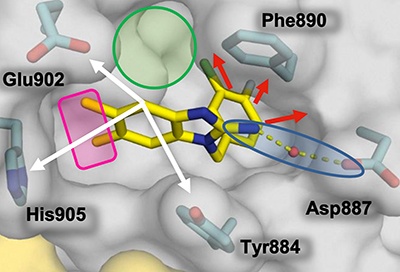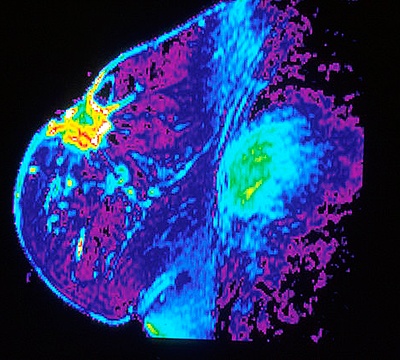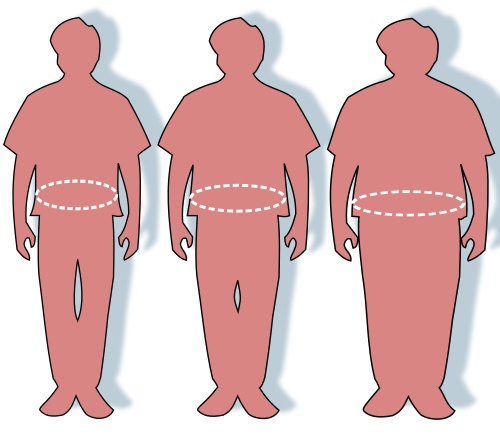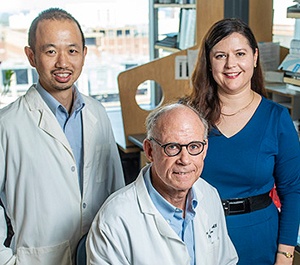Stephen Doster
-

Cancer Center investigators awarded Komen grants
Four Vanderbilt-Ingram Cancer Center (VICC) investigators have received financial support from Susan G. Komen for breast cancer research. Jennifer Pietenpol, PhD, Executive Vice President for Research at Vanderbilt University Medical Center (VUMC) and director of VICC, will receive $400,000 to lead a clinical trial for patients with metastatic triple-negative breast… Read MoreOct. 12, 2018
-

A New Approach to RAS Inhibition
A New Approach to RAS Inhibition Image reproduced with permission from T. R. Hodges, et al., (2018) J. Med. Chem., published online September 11, DOI: 10.1021/acs.jmedchem.8b01108. Copyright 2018 American Chemical Society RAS is a small protein that acts as a molecular on/off switch to modulate numerous signaling pathways that… Read MoreOct. 10, 2018
-

Promoting Immune-Mediated Therapy in Breast Cancer
Promoting Immune-Mediated Therapy in Breast Cancer Image courtesy of Dr. Steven Harmes. Baylor University Medical Center, Dallas Texas. Despite major progress in early diagnosis and treatment, breast cancer (BC) remains the second leading cause of cancer deaths among women in the U.S. A promising new approach to cancer therapy… Read MoreOct. 10, 2018
-

Elongating Microvilli in the Intestine
Elongating Microvilli in the Intestine Enterocyte showing Brush border and unstirred layer Author: Boumphreyfr Enterocytes, the epithelial cells lining the lumen of the intestine, develop a dense lawn of microvilli (MV) on their apical surface as they differentiate from stem cells in the intestinal crypt. We know that MV… Read MoreOct. 10, 2018
-

A Path to Insulin Resistance in Diet-Induced Obesity
A Path to Insulin Resistance in Diet-Induced Obesity Increasing evidence indicates that inflammation in adipose tissue (AT) contributes to insulin resistance and other metabolic abnormalities frequently observed in obesity. We know that macrophages in AT play an important role in obesity-associated inflammation and that obese AT can activate proinflammatory… Read MoreOct. 10, 2018
-

Smith named associate director of the Vanderbilt University Institute of Imaging Science
Seth Smith, PhD, director of the Center for Human Imaging in the Vanderbilt University Institute of Imaging Science (VUIIS), has been appointed the institute’s first associate director. “Seth has served VUIIS for several years as an effective leader of the Center for Human Imaging,” and will continue as associate center… Read MoreOct. 9, 2018
-

Cytokine-cognition connection
Schizophrenia and major depressive disorder are both caused by perturbations in dopamine signaling. They belong to a group of common psychiatric disorders that are characterized by deficits in motivation and learning. Treatments targeting specific neurotransmitters have been ineffective. However, evidence is emerging that the immune system is a potential therapeutic… Read MoreOct. 9, 2018
-

Mass spectrometry team earns grant to map body at the cellular level
A team of Vanderbilt University imaging experts won grants in the first round of the National Institutes of Health’s Human BioMolecular Atlas Program (HuBMAP) funding, aimed at developing an open, global framework to map the adult human body at the level of individual cells. Biochemistry professor Richard… Read MoreOct. 9, 2018
-

Cancer Moonshot award to help map tumor progression
A trans-institutional team of researchers at Vanderbilt University Medical Center and Vanderbilt University has received an $11 million Cancer Moonshot grant to build a single-cell resolution atlas to map out the routes that benign colonic polyps take to progress to colorectal cancer, the third most common cancer among both men… Read MoreOct. 9, 2018
-

Santoro to step down as department chair of PMI
After serving as the department’s leader for more than 15 years, Samuel A. Santoro, MD, PhD, the Dorothy B. and Theodore R. Austin Professor and Chair of the Department of Pathology, Microbiology and Immunology, will step down from his role as the department’s chair… Read MoreOct. 9, 2018